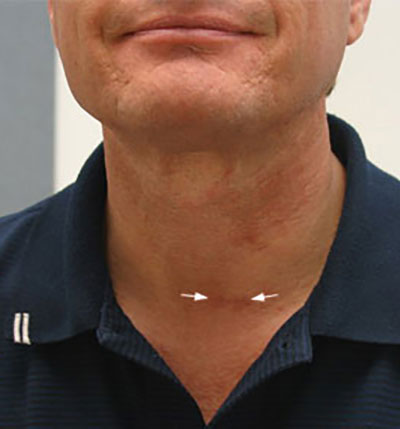Healthremedy123.com – Getting Parathyroid Removal Surgery can be a scary experience. There are several steps involved in getting this surgery done. It is important to know what to expect before, during, and after the procedure. During preparation for parathyroid removal surgery, there are several things that you need to know. These include the risks, what to expect and what to do. You should also make sure that you follow the doctor’s instructions.
During Preparation for Parathyroid Removal Surgery
One of the first things that you need to know is that you will probably need to stay in the hospital for a few days. During this time, your vital signs will be monitored. This is because there is a small risk of bleeding. It is important to drink plenty of water and to avoid heavy lifting and intense exercises. You may also need to limit your diet. You should also get plenty of rest.
You should also tell your doctor all of your blood thinning medications. You should also tell him about any herbal remedies that you might be taking. If you are taking aspirin, you should stop taking it a week prior to the surgery. You should also be aware that you might need to take calcium supplements. This is because your body might have trouble regulating the levels of calcium in your blood. If your blood calcium levels are too low, you might develop osteoporosis. This condition can cause your bones to become weak and susceptible to breaking.

During the procedure of parathyroid removal surgery, you will undergo a series of tests that will help your surgeon know which gland to remove. The tests will also help your doctor determine which surgical method will be the most effective. During the procedure of parathyroid removal, you will be given general anesthesia. The surgeon will then make a small cut in the neck, and the diseased parathyroid gland will be removed through this small cut.
Undergoing Conventional Parathyroidectomy with an Incision Made in the Neck
For patients who are having a conventional parathyroidectomy, a six to eight inch incision is made in the neck. A special probe will be inserted through the incision, and the surgeon will then be able to find the diseased gland. During the procedure of parathyroid surgery, most patients will experience a sore throat. This is especially noticeable when swallowing. The soreness should clear up within a few days.
If you have a subtotal parathyroidectomy, you may be discharged from the hospital the same day. However, if you have multiple parathyroid glands, you may spend the night in the hospital. Fortunately, the recovery process after parathyroid removal surgery is generally relatively quick. In fact, a majority of patients report a significant improvement within the first week after surgery. However, the process does require careful preparation.

Before surgery, patients are evaluated for their readiness for the procedure. This includes a complete medical history and physical examination. This will help the surgeon determine the best approach for surgery. After surgery, patients typically spend one night in the hospital. However, in some cases, the patient may stay in the hospital for a few days. Parathyroid surgery is most often performed under general anesthesia. The surgeon will make a small incision in the middle of the neck. The incision can be vertical or horizontal. An anesthesiologist will meet with the patient before the procedure. He or she will discuss the pain management needs of the patient during the surgery.
The Recovery Process with Vitamin D and Calcium Supplement Prescriptions
During the recovery process, patients may need to take calcium supplements. This is to ensure that the remaining parathyroid glands are functioning properly. Getting a follow-up appointment after parathyroid removal surgery is a necessary step to ensure the success of the procedure. Several blood tests, imaging techniques, and ultrasound are performed to ensure that the parathyroid glands are in good health. Depending on the results of these tests, a patient may be prescribed vitamin D and calcium supplements.
Depending on the patient’s situation, a follow-up appointment may be scheduled within two weeks. If the patient has drains, antibiotics may be prescribed. Patients also may be prescribed steroids. If the incision is infected, patients may experience high fevers and heat. This may cause swelling and a prolonged hospital stay. Depending on the patient’s condition, they may need to take calcium supplements before surgery. This is to prevent low calcium levels after surgery. If the parathyroid glands were removed, they may take time to start working again.

If you are undergoing parathyroid surgery, you will need to go to follow-up appointments for several weeks after the procedure. The first visit will be at week two or four. This appointment will determine whether the surgery went well. If it did not, you may need to have another surgery to remove more parathyroid glands.
Reference:






